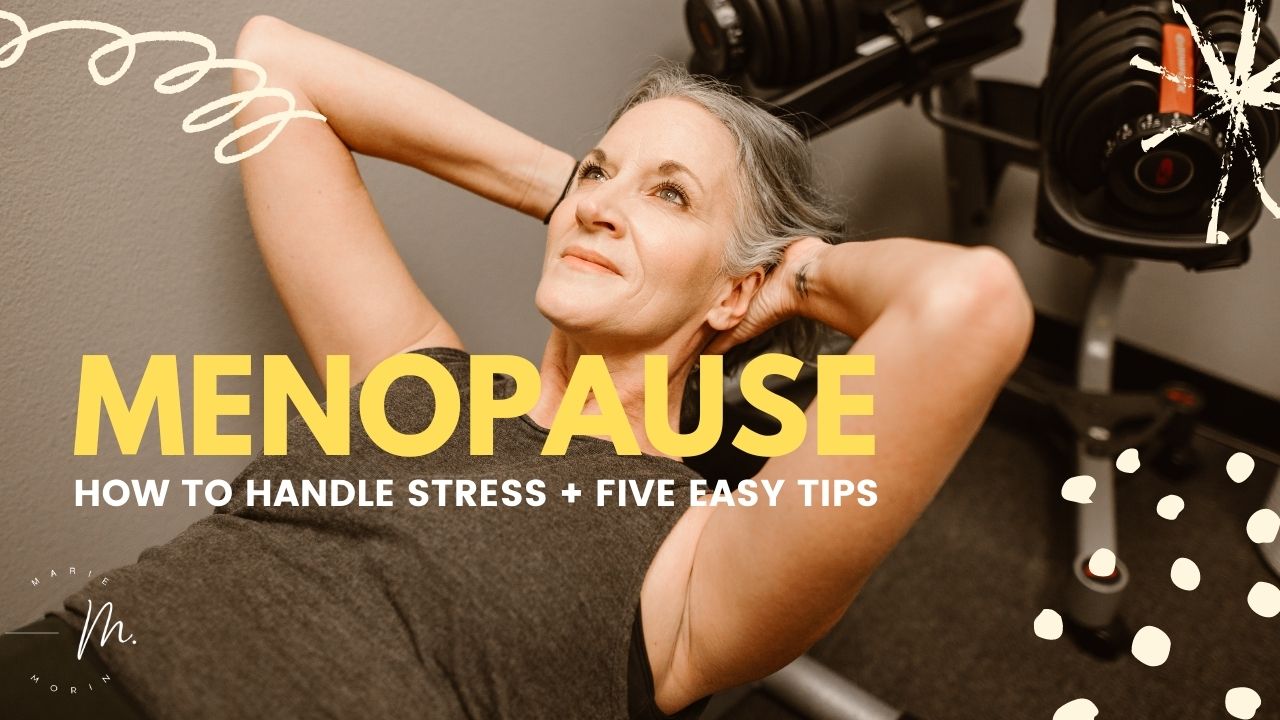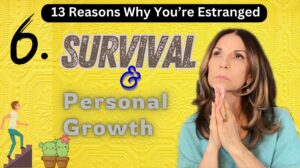If you have been experiencing stress after menopause, you are not alone. In 2021, roughly 700 million women worldwide will experience menopause. With recent events escalating pressure to profound proportions, the struggle is real! Adding menopausal symptoms such as emotional changes and sleep loss can be pretty challenging. This article discusses how to handle stress after menopause with five easy tips.
Menopausal symptoms such as hot flashes, unexplained anxiety, depression, irritability, and night sweats are a harrowing affair. As if feeling awful isn’t enough, symptoms do not disappear at the point of menopause. Symptoms can persist for as long as 15 years after your last monthly cycle. So, what’s the good news?
Good News
The good news is there are practical stress-reducing tools that work for all types of stress. Researchers found progressive muscle relaxation techniques, diaphragmatic breathing, guided imagery, Yoga Nidra meditation, mindfulness, and exercise to be effective ways to calm. The even better news is you have options to manage stress without needing a lot of time.
With available time being a common obstacle to adding any new daily practice, each method can take as little as ten minutes. Overseeing your well-being and getting the biggest bang for your efforts need not be challenging. During the menopause transition, decreased estrogen production and increased cortisol that rises with age can be annoying, but your actions can make a difference.
Increased stress hormones along with less estrogen can be responsible for symptoms including:
eight gain- and or bloating hot flashes, night sweats, difficulty sleeping, irritability, anxiety, and depression. Whiles some of these symptoms will require the help of a doctor or alternative medical interventions such as acupuncture, daily practices can help you feel relief.
The Big Bang of Stress Busters
Daily routines serve to form habits that are good for us. We need a game plan to address ordinary daily stressors with a more intense variety. Intense life circumstances that coincide with the menopausal years of fifty-five to sixty-five include aging and ill parents, financial stressors, health issues, weddings, the death of loved ones, and moving. Think of daily practices like a savings account you dip into when times are tough. You will be better prepared to venture into the storms if your account is full.
Daily routines will ground you into the security of having a regular schedule you can control on your better days. We cannot predict what each day will bring, but we can take charge of our physical and mental health by choosing practices that build our well-being account.
Your well-being account needs the basics of good nutrition, optimal hydration, movement, enough sleep, and human connection. Do your best to care for yourself intentionally; remember what you can and cannot control. Make time to have fun by watching a comedian, or funny movie, or playing outside. Practice techniques that reduce stress even on your best days.
Five tips to Manage Stress After Menopause
1. Learn quick stress-reducing breathing techniques you can always have in your pocket.
Diaphragmatic breathing or deep breathing is beneficial. You can do it anywhere and anytime to help get you out of you’re high anxiety state.
Breathe down into your belly so that it expands, then exhale while gently pulling your belly button towards your spine.
Do this 3-5 times or until you can feel a calm come over you.
2. Be sure to do some movement. When you are stressed, you may find it difficult to stop and breathe. You can go for a brisk walk, try some yoga, or Qi Gong.
Even quickly cleaning and straitening the space around you will help you get moving.
3. If you find you are irritable, do something different. If you are irritated by someone, politely excuse yourself and do deep breathing, listen to some music that quiets you, or write in a journal. Once you have settled yourself, you can go back to what you were doing if you are ready. The key is to know the sensations that alert you are stressed and be kind to yourself. It is ok to take time to reset.
4. For mood, you have options. Think about speaking to a friend, therapist, or coach to come alongside you and listen. Ventilating what is going on for you can be enormously helpful. Remind yourself that you are doing the best you can, resist being self-critical.
Do your best to stay connected with friends and loved ones. Make it a priority.
5. Ramp up your self-care by getting enough sleep. Try a yoga Nidra or deep relaxation recording before bed to help you fall asleep and if you awaken during the night. Be kind to yourself by having a routine. Avoid daytime naps. If you can’t sleep, get out of bed until you are sleepy, stay away from screens, and don’t drink caffeine in the afternoon or later. Avoid alcohol, sugar, and processed foods that will spike blood sugar. Make your bedroom comfortable and unique.
Your menopausal symptoms need not put a cramp in your style. You will likely have better days along with the tougher ones. Women are a resilient bunch, and you have what it takes to foster a lifestyle of healthy living and self-care. By the time menopause hits, you have already learned how to overcome incredible trials. Remind yourself of how strong you are!! On your more challenging days, summon this memory and charge forward!
You have tools to address emotional symptoms, the physical responses to stress, and sleep disturbances. Make your well-being a priority by using daily practices to build a reserve in your well-being account.
Your good news is there are practical stress-reducing tools that work. Try a progressive muscle relaxation technique, diaphragmatic breathing, guided imagery, Yoga Nidra meditation, mindfulness, and exercise to be very effective ways to get calm. Pick what works for you and make it part of your daily routine. This article discusses how to handle stress after menopause with five easy tips.





